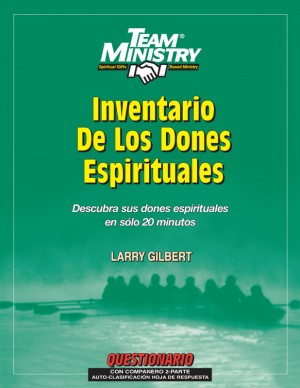Someone once called the Holy Spirit, “the forgotten person of the Trinity.”
While that may have been true throughout much of church history, we are living in a generation that has rediscovered the important role of the Holy Spirit in our life.
One of the most significant consequences of this awakening is many Christians’ interest in discovering and using their spiritual gifts in ministry.
Understanding who the Holy Spirit is, what He does, how we relate to Him, and what He expects of us in our life is important for Christians.
Who Is the Holy Spirit?
Some people view the Holy Spirit mystically, considering Him to be some kind of force or emanation from God. But the Bible teaches that the Holy Spirit is far more than this. He is not merely a force but a person with all the attributes of personality. But neither is the Holy Spirit only a person. Scripture makes it clear that the Holy Spirit is also God.
Personality involves intellect, emotions, and will. The Holy Spirit knows things that only God knows (1 Corinthians 2:11). He is also identified as loving (Romans 15:30) and subject to grief (Ephesians 4:30). He also acts on the basis of decisions He makes (1 Corinthians 12:11). He is described in Scripture as teaching (John 14:26), testifying (John 15:26), guiding (Romans 8:14), speaking (1 Corinthians 2:13), enlightening (John 16:13), striving (Genesis 6:3), interceding (Romans 8:26), sending workers (Acts 13:4), calling (Revelaton 22:17), comforting (John 16:7), and working (1 Corinthians 12:11).
The early church recognized the personality of the Holy Spirit and responded appropriately. They obeyed Him (Acts 10:19), followed His leading (Acts 8:39), and warned others against resisting the Holy Spirit (Acts 7:51). They associated the Holy Spirit with the other two persons of the Trinity when they baptized converts (Matthew 28:19) and blessed one another (2 Corinthians 13:14). To better understand The Trinity, read this related Article
WHAT WE BELIEVE ABOUT…
- THE HOLY SPIRIT IN THE WORLD. Concerning the Holy Spirit, Jesus taught, “And when He has come, He will convict the world of sin, and of righteousness, and of judgment” (John 16:8). A second aspect of the work of the Holy Spirit in the world is that of restraining evil. It is sometimes hard for Christians to believe sin is restrained at all in this present age, but the Bible describes the Holy Spirit as the Restrainer (2 Thessalonians 2:7).
- THE GIFTS OF THE HOLY SPIRIT. The apostle Paul used five different Greek words to describe spiritual gifts (1 Corinthians 12:1-7). Pneumatikon (spiritual) describes the character of these gifts as spiritual (1 Corinthians 12:1). Charismata (gifts) emphasizes God’s free and gracious gifts (1 Corinthians 12:4). Diakonia (ministries) describes gifts as opportunities for ministry (1 Corinthians 12:5). Energama (activities) suggests that gifts are an endowment of God’s power or energy (1 Corinthians 12:6). Phanerosis (manifestation) describes gifts as an evidence of God working through us (1 Corinthians 12:7). To learn more, read this article How Many Spiritual Gifts Are There?
- THE FULLNESS OF THE HOLY SPIRIT. Many Christians have different ideas about the fullness of the Holy Spirit. In the New Testament, the fullness of the Holy Spirit was sometimes associated with tongues of fire, shaking buildings, rushing winds, and people speaking in other languages or doing miracles. At other times, people were filled with the Holy Spirit and none of these things happened. According to the Bible, there appear to be two evidences that a person is indeed filled with the Holy Spirit. First, those who are filled with the Holy Spirit have unique spiritual power in leading others to faith in Christ (Acts 1:8). Second, those who are filled with the Holy Spirit have a divine enablement to fulfill their social roles and responsibilities, particularly in family and working relationships (Ephesians 5:18-33, Ephesians 6:1-9). The apostle Paul urged the Christians at Ephesus, “Be filled with the Spirit” (Ephesians 5:18). But the steps to being filled with the Holy Spirit were summarized by Jesus when He said, “If anyone thirsts, let him come to Me and drink. He who believes in Me, as the Scripture has said, out of his heart will flow rivers of living water.” (John 7:37-38). The four steps to being filled with the Holy Spirit are (1) desire (thirst), (2) repentance of all known sin in your life (come to me), (3) receiving God’s offer of the Holy Spirit to those who obey Him (drink), and (4) acting on the basis of faith in the Word of God (He who believeth in me).
- THE FRUIT OF THE HOLY SPIRIT. As you live your Christian life in the fullness of the Holy Spirit, you will encourage the Holy Spirit to produce spiritual fruit in your life. The Bible describes the fruit of the Spirit as the character traits of love, joy, peace, longsuffering, kindness, goodness, faithfulness, gentleness, and self-control (Galatians 5:22-23). Producing spiritual fruit in our lives is one of the primary means by which the Holy Spirit continually transforms us into the image of Christ (Philippians 1:6; Romans 8:29). Read this article to learn more about the fruit of the Spirit.
Scripture describes the Holy Spirit as God.
Many of the more than one hundred names and titles of the Holy Spirit in Scripture describe Him in divine terms (God, Acts 5:4; Spirit of God, Genesis 1:2; and Spirit of the Lord God, Isaiah 61:1).
Other names such as Eternal Spirit (Hebrews 9:14), Spirit of Truth (John 16:13), and Holy One (1 John 2:20) describe the Holy Spirit as possessing attributes belonging to God.
Also, the Holy Spirit is described as accomplishing the work of God in creation (Job 26:13), regeneration (John 3:5), and inspiration (2 Peter 1:21).
There is little question concerning the deity of the Holy Spirit.
Dr. Elmer Towns is Vice President of Liberty University, which he co-founded in 1971 with Dr. Jerry Falwell. Dr. Towns has been a popular Sunday school teacher and college and seminary professor for decades.
This article is excerpted and condensed from Dr. Towns’ 60-page eBook Foundational Doctrines of the Faith. Read it NOW, eBook instant PDF Download, $11 value only $4.99, More…
Here is a summary article of the 8 Foundational Doctrines of the Christian Faith
RELATED ARTICLES: WHAT WE BELIEVE ABOUT…
Permission granted to copy, forward, share, post and reproduce everything in this article, please include this link Source: ChurchGrowth.org, CLICK HERE to subscribe for FREE
To grow as a Christian, you need to…
- Pray, worship God and read The Bible each day,
- Join a small group with other Christians to encourage each other’s Christian growth,
- Each week, join in worship at a good Church that preaches The Bible as God’s Word,
- And minister to others in the name of God.
Discover more about how God has given to you spiritual Gifts for your own personal ministry and for ministry with others using the links and resources shown below.
Here are more free articles, one for each of the nine Team Ministry Spiritual Gifts…
Each of these nine Team Ministry Spiritual Gift articles was excerpted from the book Your Gifts: Discover God’s Unique Design for You.
Discover more about your spiritual gifts and each of the nine team gifts.
For individuals and groups.
Read This Book NOW, eBook Instant PDF Download, Click Here
Read This Book with Your Group, Bulk Pricing for Groups, Click Here

Spiritual Gifts Can Unleash the Power of Everyone!
Lead others to discover their spiritual gifts.
For pastors, teachers and group leaders.
Read This Book Now, eBook Instant PDF Download, Click Here
Read This Book with Your Group of Pastors and Shepherds, Bulk Pricing for Groups, Click Here














